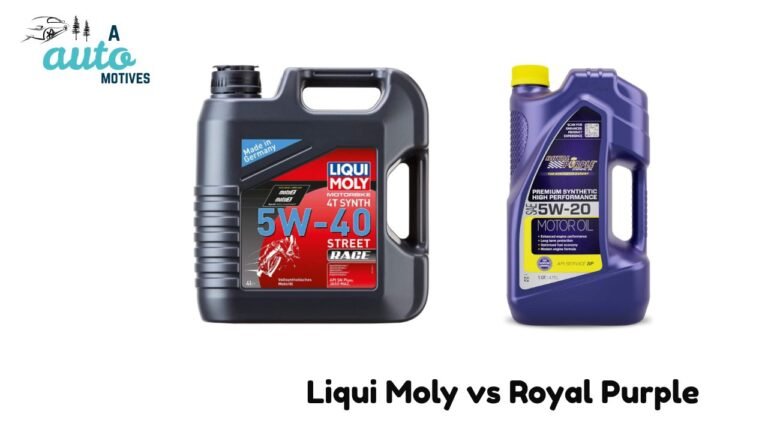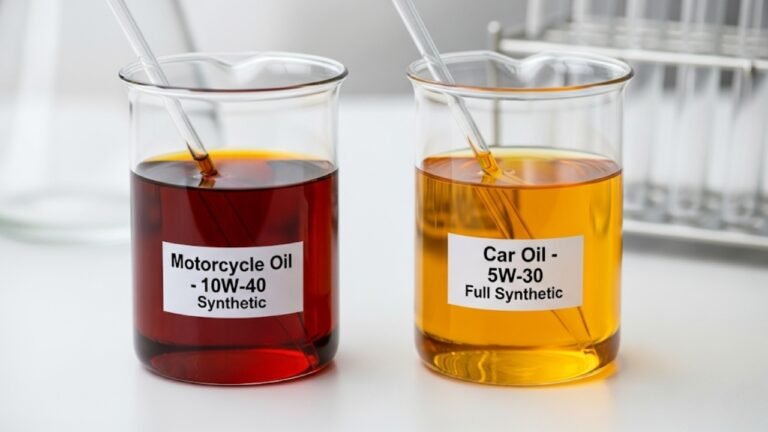Can I Use Synthetic Oil in a High Mileage Car?

If you’ve ever stared at a dusty dashboard of your beloved car and wondered, “Should I switch to synthetic oil now?”—you’re not alone. Many drivers find themselves asking, can I use synthetic oil in a high mileage car? Especially when the odometer ticks past the 100,000-mile mark, decisions about maintenance can get tricky.
Let’s be real. Our cars age like we do. They don’t run the same at 150,000 miles as they did at 15,000. And when you’ve had a car for that long, it probably feels like family. So naturally, you want to give it the best—without breaking the bank or making a misstep that could do more harm than good.
This article is here to help you answer that very question, using simple language, real-world experience, and just the right amount of expert insight. We’ll dig into the science of motor oil, the emotional attachment to high mileage vehicles, and whether synthetic oil is the magic potion your engine deserves.
In This Article
- 1 Why This Question Matters: More Than Just Motor Oil
- 2 Understanding Synthetic Oil: What Makes It Different?
- 3 High Mileage Cars: What’s Really Going On Under the Hood?
- 4 So, Can I Use Synthetic Oil in a High Mileage Car?
- 5 Benefits of Synthetic Oil for Older Engines
- 6 How to Make the Switch Safely: From Conventional to Synthetic
- 7 Real-Life Stories: What Drivers Say About Switching to Synthetic Oil
- 8 Synthetic vs. High Mileage Synthetic: Is There a Difference?
- 9 Cost vs. Value: Is It Really Worth Paying More?
- 10 FAQs: You Asked, We Answered
- 10.1 1. Can I use synthetic oil in a high mileage car that’s never had it before?
- 10.2 2. Will synthetic oil cause leaks in my old engine?
- 10.3 3. Do I need to flush my engine before switching to synthetic?
- 10.4 4. How often should I change synthetic oil in a high mileage vehicle?
- 10.5 5. Which brands offer the best high mileage synthetic oil?
- 10.6 6. What signs show my car will benefit from synthetic oil?
- 10.7 7. Can synthetic oil reverse engine wear?
- 11 Tips for Extending the Life of a High Mileage Engine
- 12 Conclusion: Is Synthetic Oil the Right Choice for Your High Mileage Car?
Why This Question Matters: More Than Just Motor Oil

-
Will synthetic oil improve my engine’s health?
-
Is it safe for old seals and gaskets?
-
Will it cause leaks or damage?
-
Is the extra cost even worth it?
Each of those concerns is valid. High mileage engines have more wear, older seals, and maybe even a few quirks—just like an old friend who creaks a bit but still gets the job done. So let’s break this down in a way that’s easy to digest, but hard to forget.
Understanding Synthetic Oil: What Makes It Different?
Before we dive into the nitty-gritty of using synthetic oil in a high mileage car, it helps to understand what synthetic oil actually is.
Synthetic oil is made in a lab. It’s engineered to be smoother, more consistent, and better at resisting breakdown than conventional oil. Think of it like filtered water vs spring water—both hydrate, but one has fewer impurities and is better suited for sensitive systems.
Here’s what makes synthetic oil a top-tier performer:
-
Molecular uniformity: Fewer contaminants mean better flow.
-
Higher temperature resistance: Doesn’t break down easily under heat.
-
Better cold start protection: Flows quickly even when it’s freezing.
-
Longer lifespan: You can go longer between oil changes.
It’s like feeding your car a cleaner, high-protein diet instead of junk food. And if you’ve got a car with 100,000 miles or more, that kind of fuel might be just what it needs.
High Mileage Cars: What’s Really Going On Under the Hood?
Let’s talk about what happens inside a high mileage engine. If your car has crossed the six-digit mileage club, you know it’s seen a lot—hot summers, freezing winters, traffic jams, and maybe even the occasional off-road adventure.
Over time, this causes:
-
Seal wear: Rubber seals can dry out and shrink.
-
Oil consumption: Engines may burn more oil due to internal wear.
-
Sludge buildup: Old oil leaves behind gunk that clogs parts.
-
Reduced compression: Worn rings or valves lower engine performance.
Now, this doesn’t mean your car is on its last leg. Far from it. With proper care and a bit of mechanical empathy, many vehicles easily reach 200,000 or even 300,000 miles. But your oil choice becomes more important than ever.
So, Can I Use Synthetic Oil in a High Mileage Car?
Short Answer: Yes, You Can — And You Probably Should.
Here’s the long answer: Modern synthetic oils are designed to be compatible with both new and high mileage engines. In fact, many synthetic oils are specially formulated for high mileage vehicles and contain additives that condition old seals, prevent leaks, and clean up sludge.
When people worry about switching to synthetic oil, they usually fear one thing—oil leaks. This concern stems from a time when synthetic oils were less refined and more likely to cause problems in older engines. But those days are gone. Today’s synthetic blends are gentle, adaptive, and cleaner than ever.
Let’s look at some real-world scenarios:
| Situation | Should You Use Synthetic Oil? | Notes |
|---|---|---|
| 150,000 miles, no leaks | Yes | Perfect candidate for full synthetic |
| 200,000 miles, slight oil seep | Yes (high mileage synthetic) | Use oils with seal conditioners |
| 120,000 miles, poor maintenance history | Start with synthetic blend | Gradual cleaning helps avoid sludge dislodging too fast |
| 100,000+ miles, lots of short trips | Yes | Synthetic offers better cold start protection |
So if you’re asking yourself, can I use synthetic oil in a high mileage car, know that not only is it safe—it can be a smart way to extend your vehicle’s lifespan.
Benefits of Synthetic Oil for Older Engines
Let’s say your car’s been running fine on conventional oil, and you’re nervous to rock the boat. Here’s why you might want to consider making the switch anyway:
1. Better engine protection
Synthetic oil forms a stronger, more consistent film between moving parts. That means less friction, less heat, and less wear—especially helpful for engines that are no longer in their prime.
2. Cleaner internal components
Synthetic oil is excellent at breaking down and suspending dirt, sludge, and combustion byproducts. It helps clean your engine over time, rather than leaving a sticky mess behind.
3. Improved fuel economy
Because it flows more freely, synthetic oil can slightly reduce engine drag. That means better fuel efficiency—especially on longer drives.
4. Extended oil change intervals
With conventional oil, you might change it every 3,000 to 5,000 miles. With synthetic? You can often go 7,500 to 10,000 miles (check your manual). That saves you time, money, and hassle.
5. Cold weather startup
If you live somewhere cold, synthetic oil flows faster on start-up. That means quicker lubrication and less engine wear in the first few seconds after ignition—when most damage actually occurs.
So yes, using synthetic oil in a high mileage car is like putting vitamins into your morning smoothie. It’s not a miracle, but it definitely helps your system run better.
How to Make the Switch Safely: From Conventional to Synthetic
If you’re feeling convinced but still hesitant, here’s how to make the transition without stress.
Step-by-step tips:
-
Start with a synthetic blend if your engine’s old and has never seen synthetic before.
-
Check for leaks around the valve cover, oil pan, and gaskets. If there’s none, you’re good to go.
-
Use a high mileage synthetic oil that includes seal conditioners.
-
Change your oil filter when switching. A new oil deserves a clean start.
-
Keep an eye on oil levels for the first 1,000 miles after the switch. If the level drops rapidly, get it checked.
Most engines will adapt without issue. But if your vehicle already has heavy sludge from years of neglect, synthetic oil might clean it too fast. That’s why starting with a blend or doing a flush may be a safer route.
Real-Life Stories: What Drivers Say About Switching to Synthetic Oil
Let’s talk about personal experiences. If you’ve ever chatted with a seasoned mechanic or long-time car owner, chances are you’ve heard a success story or two about switching to synthetic. I remember a friend with a 2005 Toyota Camry that had clocked nearly 220,000 miles. It had always run on conventional oil, but during one cold Michigan winter, she tried synthetic for the first time. She was skeptical—like most of us. But the result? Quieter engine starts, smoother drives, and better fuel economy within weeks.
These kinds of anecdotes aren’t rare. Many high-mileage drivers report reduced oil consumption, fewer cold-start problems, and even cleaner oil at the next change after switching. If you’ve ever wondered, can I use synthetic oil in a high mileage car, remember—you’re not the first, and countless drivers before you have made the switch successfully.
Synthetic vs. High Mileage Synthetic: Is There a Difference?
Let’s clear up some confusion. You may see two types of synthetic oils on shelves:
-
Regular synthetic oil
-
High mileage synthetic oil
While both offer benefits, high mileage synthetic oils are specially blended for engines with 75,000+ miles. These formulas contain:
-
Seal conditioners to reduce leaks
-
Anti-wear agents for aging engine parts
-
Detergents to clean sludge and varnish buildup
-
Viscosity modifiers that help oil flow better at all temperatures
So if you’re unsure whether to use synthetic in your older vehicle, high mileage synthetic oil is your safest bet. It’s designed with your engine’s age and needs in mind.
Cost vs. Value: Is It Really Worth Paying More?
It’s true—synthetic oil is more expensive up front. A typical oil change with synthetic can cost $20–40 more than conventional oil. So the question becomes: is it worth it?
Here’s how it breaks down:
| Factor | Conventional Oil | Synthetic Oil |
|---|---|---|
| Average cost per change | $35 | $60–$75 |
| Change interval | 3,000–5,000 miles | 7,500–10,000 miles |
| Cost per mile | ~$0.01 | ~$0.008 |
| Engine wear protection | Basic | Advanced |
| Cold weather startup | Slower | Faster |
| High mileage support | Limited | Specialized formulas |
In the long run, synthetic oil often costs the same or less per mile. Plus, you get peace of mind, better engine health, and potentially longer vehicle life—which can save you from costly repairs or early replacements.
FAQs: You Asked, We Answered
1. Can I use synthetic oil in a high mileage car that’s never had it before?
Yes. Start with a high mileage synthetic or a synthetic blend. Monitor for leaks or changes in oil consumption, but most vehicles make the switch without any problems.
2. Will synthetic oil cause leaks in my old engine?
Not usually. In fact, high mileage synthetics contain seal conditioners to reduce leaks. If your seals are already damaged, oil might start seeping regardless of type.
3. Do I need to flush my engine before switching to synthetic?
Not necessarily. If your engine is clean and well-maintained, a flush isn’t required. If you suspect heavy sludge, consider using a synthetic blend first or consult a mechanic.
4. How often should I change synthetic oil in a high mileage vehicle?
Generally every 7,500 to 10,000 miles. However, check your car’s manual and consider your driving habits—short trips and extreme climates may call for more frequent changes.
5. Which brands offer the best high mileage synthetic oil?
Popular and trusted brands include Mobil 1 High Mileage, Castrol GTX High Mileage, and Valvoline MaxLife. Choose one with certifications like API SN or ILSAC GF-6.
6. What signs show my car will benefit from synthetic oil?
If your engine feels sluggish, burns oil, or struggles in cold weather, switching to synthetic could improve performance, cleanliness, and efficiency.
7. Can synthetic oil reverse engine wear?
No oil can reverse wear, but synthetic oil can slow further wear, reduce internal friction, and keep your engine running more smoothly for longer.
Tips for Extending the Life of a High Mileage Engine
Switching oil is just one part of long-term car care. Here are a few habits that go hand in hand with using synthetic oil in older engines:
-
Keep up with regular oil changes, no matter what oil you use.
-
Use a quality oil filter that captures more debris.
-
Listen to your engine—strange sounds or rough idling can be early signs of trouble.
-
Top off oil between changes if your engine burns a little (many older ones do).
-
Avoid aggressive driving—easy acceleration and braking can reduce wear.
Combining these tips with the right oil choice creates a recipe for longevity, even in older vehicles.
Conclusion: Is Synthetic Oil the Right Choice for Your High Mileage Car?
If you’ve stuck with your car this long, it’s more than just transportation—it’s a story. A road trip companion. A daily lifeline. So it’s only natural you want the best for it.
The good news? Yes, you can use synthetic oil in a high mileage car, and in most cases, you absolutely should. Today’s formulations are safer, smarter, and more engine-friendly than ever. They offer better protection, longer life, and cleaner performance—all things an older engine craves.
So next time you’re at the shop or browsing oil online, don’t let fear or old myths stop you. Go synthetic with confidence. Your car deserves it.
And who knows? With the right care and oil, maybe your “old ride” still has a few more road trips left in it.






